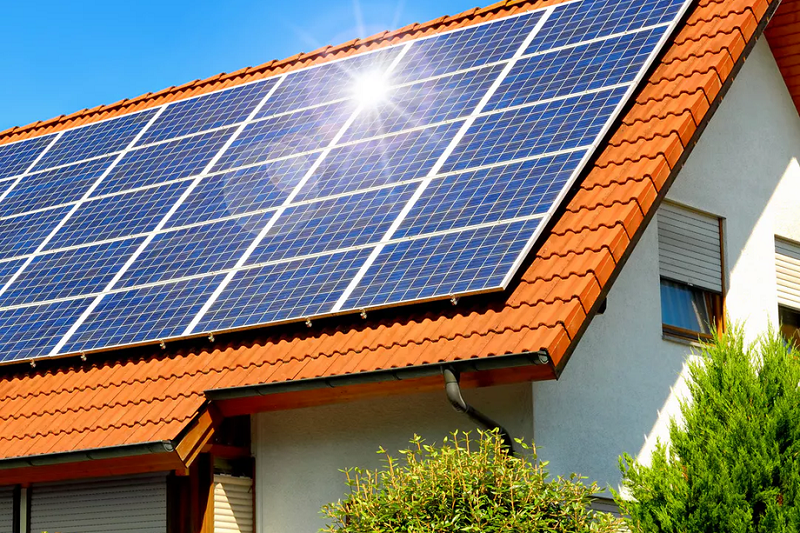EVN allowed to continue buying rooftop solar power
The purchase of rooftop solar power is part of efforts to boost the development of renewable energy in Vietnam amid quick energy transition.
Vietnam’s Ministry of Industry and Trade (MOIT) has approved Vietnam Electricity (EVN)’s proposal to continue buying power from rooftop solar projects, local media reported.
The ministry has also required EVN to be responsible for connecting rooftop solar power to the national electricity grid without causing overload.
The country’s sole power distributor EVN made the proposal with an aim to encourage the development of rooftop solar power which reaches only 350 MW after two years.
Vietnam applies a price of 8.38 US cents per kWh for rooftop solar power.
| Vietnam is making efforts to boost the development of rooftop solar power |
EVN hopes that the purchase would help increase the country’s total rooftop solar power capacity to around 2,000 MW by the end of 2020, according to the Vietnam News Agency.
In May 2019, EVN announced to buy rooftop solar power from its customers in case they don’t use up the volume their solar panels produce. The sellers will be both private households and organizations who are buying electricity directly from EVN.
The move aims to boost the development of renewable energy, mostly solar power in the context that Vietnam is tapping maximum capacity of fossil energy and accelerating energy transition.
Since mid-2017, Vietnam has encouraged the development of solar power with a feed-in-tariff (FIT) of 9.35 US cents/kWh.
At the end of 2018, the number of solar power projects reached 121 with total capacity of 6,100 MW added to the national power master plan by 2020, compared to 850MW by 2020 approved earlier by the prime minister.
In a move to support the development of solar power, the MOIT in September 2019 submitted to the prime minister its final draft decision on incentives for solar power investors. The draft document includes two substantial incentives namely new FIT and detailed regulations on rooftop solar power projects.
Under the ministry’s document, rooftop solar power projects are those having capacity of 1 MWp or less each and those having more capacity will be deemed a ground-mounted solar power projects.
There are four models of rooftop solar power projects, including (i) the household power consumption, in which a portion of the power will be consumed by the investors and the remainder will be sold to EVN; (ii) the intermediary power sale and purchase, in which a portion of the power will be sold by other individuals and organizations and the remainder will be sold to EVN; (iii) the whole power sale business, in which all generated power will be sold to EVN; (iv) the direct power sale and purchase in which all generated power will be sold to other organizations and individuals instead of EVN, according to local experts.











